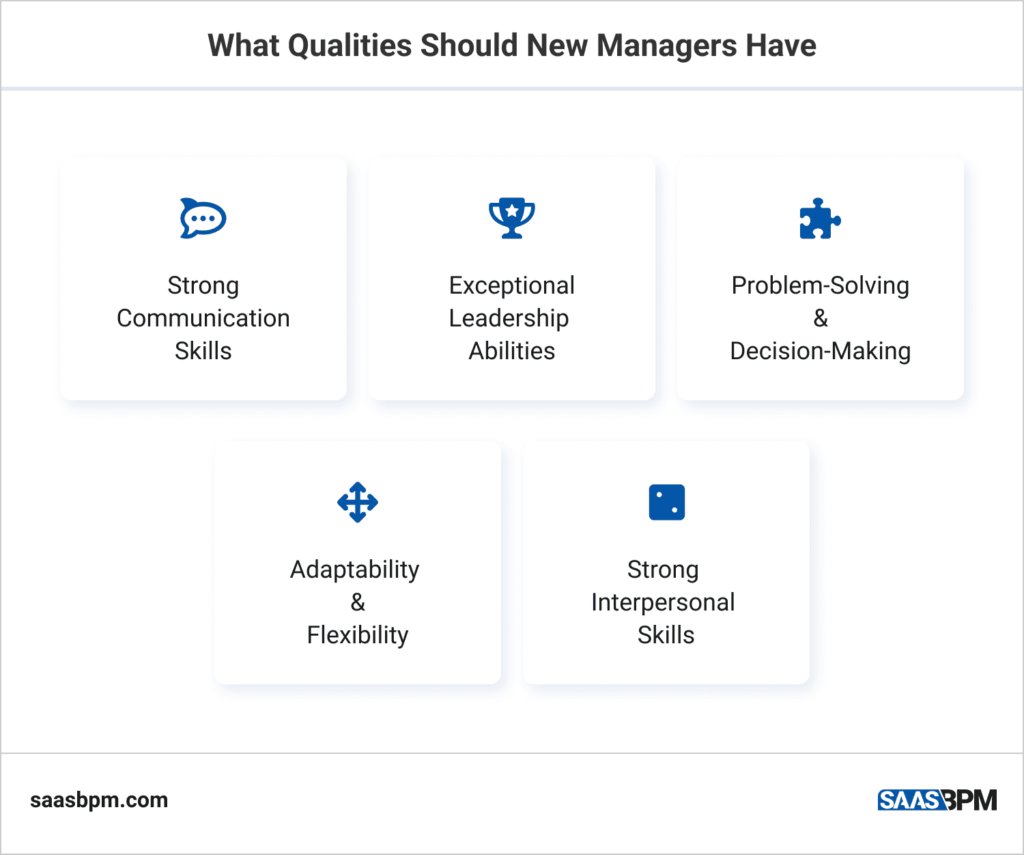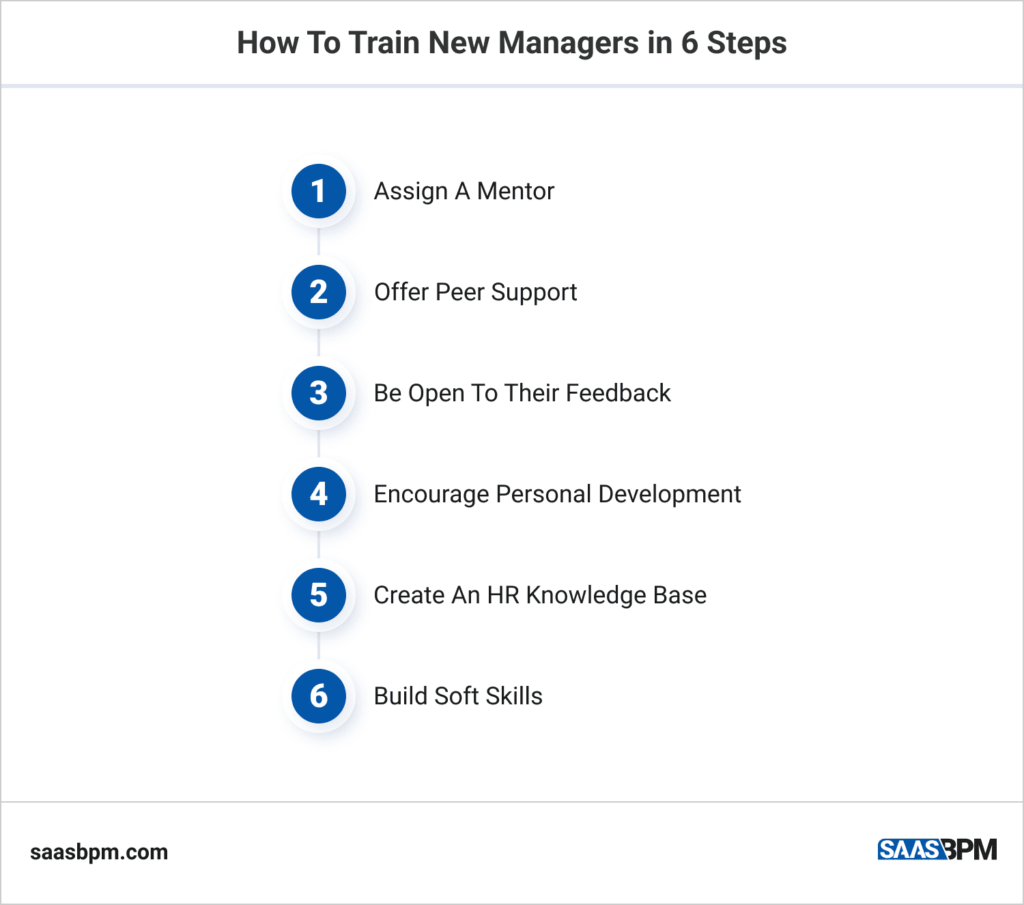Quite often, especially in highly productive teams, it can be difficult to decide who to promote. After all, why fix it if it’s not broken? However, developing new managers internally is a way to preserve company values, and ensure talent retention and employee satisfaction.
Many high-growth companies struggle to catch up with their own pace just because of lack of talent. Available instantly. And as much as they are good at scaling and optimizing their business processes, the highest (and most urgent) demand is for management and leadership positions.
One of the most common solutions is to promote from within and invest in proper leadership training for new managers in-house, and recruit for entry-level roles to fill the gaps. Of course, this is not a simple decision, and you should look for certain qualities in team members that you think may be suitable for promotion.
Are they ready to take this step? Can they manage their own time? Do they often offer help to their colleagues and treat them with respect?
If you feel like this is way too complicated and you’d rather leave hierarchy in your company as it is, we’ve got your back. In this article, we will walk you through the skills that speak “new manager potential”, and explain why solid training is important. Then, we will cut to the chase and suggest 6 steps to develop new managers in your team.
Who Deserves To Become A New Manager: Qualities To Look For

Choosing the right person to promote to leadership level is a critical decision for any organization. Effective managers play a vital role in driving productivity, fostering a positive work culture, and achieving overall success. So, here are 5 tell-tale signs that a person can make a great first-time manager.
Strong Communication Skills
One of the most fundamental qualities of a good manager is the ability to communicate effectively. Excellent communication skills facilitate clear instructions, active listening, and the ability to motivate and inspire teams. Look for candidates who can articulate their thoughts concisely, adapt their communication style to different audiences, and foster an open and transparent environment.
Exceptional Leadership Abilities
New managers should possess strong leadership qualities, and not confuse them with micromanagement and harassment. They should be able to set a clear vision, inspire others to follow, and guide the team toward success. Look for individuals who demonstrate confidence, empathy, and the ability to make tough decisions. Effective leaders lead by example, create a supportive environment, and empower their colleagues to reach their full potential.
Problem-Solving and Decision-Making Skills
Managers often face complex challenges and need to make critical decisions under pressure. Therefore, when looking for new managers to promote, look for individuals who demonstrate strong problem-solving skills, analytical thinking, and the ability to consider multiple perspectives. A good manager should be able to gather relevant information, evaluate options, and make well-informed decisions that benefit the team and the organization.
Adaptability and Flexibility
The business landscape is constantly evolving, and managers need to be adaptable to navigate change successfully. So, it’s important to be open-minded, embrace new ideas, and can adjust their approach as needed. A manager who can handle ambiguity and adapt to unforeseen circumstances inspires confidence and encourages innovation within the team.
Strong Interpersonal Skills
A manager interacts with various individuals within and outside the organization. Therefore, strong interpersonal skills are crucial. Look for candidates who can build relationships, collaborate effectively, and resolve conflicts constructively. A good manager fosters a positive work environment, promotes teamwork, and encourages open communication among team members.
Why Is New Manager Training Important?
New manager training is crucial for the success of both the individual and the organization. When someone transitions into a managerial role, they face new challenges and responsibilities that require specific skills and knowledge.
Training provides them with the necessary tools and techniques to effectively lead and manage their teams. Also, they learn about organizational policies, procedures, and culture, and how to align their actions with the company’s goals.
Investing in good training for new managers fosters employee growth, enhances team productivity, and promotes a positive work environment.
Training New Managers In 6 Steps

As you can see, spotting potential for new managers in your team is quite the process, and it is important to ensure the individuals have what it takes and are indeed ready. Here are 6 steps to ease them into their new role and added responsibilities.
Assign A Mentor
One of the most effective ways to support new managers is by assigning them a mentor. In fact, 96% of Forbes 100 companies have mentoring programs in place.
A mentor is an experienced manager who can provide guidance, share their knowledge and insights, and offer advice based on their own managerial experience. This way, the first-time manager will better learn how to navigate challenges, provide feedback, and act as a sounding board for ideas and concerns.
This one-on-one relationship fosters a supportive learning environment and accelerates the new manager’s growth and development.
Offer Peer Support
Establishing a network or forum where new managers can connect and share experiences with their peers provides a valuable platform for learning and collaboration. Through peer support, they can gain different perspectives, learn from each other’s successes and failures, and build a strong support system. This collaborative environment will help them settle into their new position and develop essential management skills with the team.
Be Open To Their Feedback

You can’t expect to just throw the new manager into the deep end and hope everything runs smoothly. Sometimes, as a decision-maker in a business, you can easily miss opportunities to refine established processes by considering fresh perspectives.
After the promotion, your new managers will be motivated to share ideas and suggest improvements to you. This is a good sign – it means you were right about them and made a good choice! So, be open to their feedback and include them in discussions as they just want to improve and help out.
Encourage Personal Development
Effective management goes beyond technical skills. It requires personal growth and development. Encouraging new managers to invest in their personal development not only benefits them but also the organization as a whole.
Provide opportunities for them to attend leadership workshops, seminars, or conferences. Offer access to relevant books, articles, and online resources. Supporting their personal development helps them expand their knowledge, gain new perspectives, and develop the leadership qualities needed to excel in their managerial roles.
Create An HR Knowledge Base
To help new managers navigate the complexities of onboarding, create an HR knowledge base.
This centralized repository should contain information on various HR policies, procedures, and best practices. It can include documents such as employee handbooks, guidelines for performance evaluations, disciplinary procedures, and legal compliance requirements.
Having a comprehensive HR knowledge base ensures that new managers have access to the necessary information to make informed decisions and handle HR-related matters effectively.
Build Soft Skills
While technical skills are important, soft skills are equally vital for effective management.
Soft skills, such as communication, emotional intelligence, problem-solving, and conflict resolution, play a significant role in building relationships, motivating teams, and achieving organizational goals.
Incorporate training modules that focus on developing these essential skills. Provide opportunities for new managers to practice and receive feedback on their soft skills, as this will help them become well-rounded and effective leaders.
Wrapping Up
It is great to develop new managers within your team – this helps you retain talent and create opportunities for more entry-level hires that can enhance your company. Mind you, look out for the signs we’ve mentioned in this guide to make the right decision for who to promote. Also, invest in a thorough new manager training, and provide continuous support and guidance.

